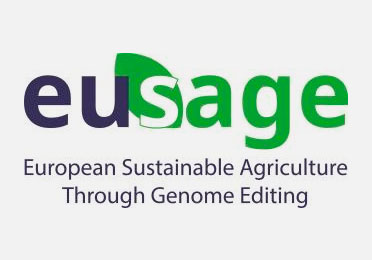
I2SysBio is a founding member of EU-SAGE, a network created in 2018 representing scientists from 134 European scientific institutes and societies that provides information on genome editing and promotes the development of European and EU member state policies that enable the use of this technology for sustainable agriculture and food production.
Genome editing is a disruptive technology, the significance of which has been recognised by the recent award of the Nobel Prize in Chemistry to Emmanuelle Charpentier and Jennifer A. Doudna, two scientists who contributed to the development of CRISPR-based genome editing.
Genome editing is a new approach to knowledge-based breeding, which harnesses plants' own natural solutions, and can be used to reduce current external input requirements and enable more environmentally friendly food production.
The EU Court of Justice's decision to subject plants improved by genome editing to the complicated and costly European regulation on Genetically Modified Organisms (GMOs) places this technology outside the normal scope of plant variety breeding and registration. This is a severe blow to the expectations and promises that gene editing offers for the sustainability and competitiveness of a sector such as the agri-food sector, which is so important in our country.
The numerous reactions to this ruling have led the EU to carry out a study on its importance and impact within the Union. I2SysBio joins the many academic and business voices calling for a review of this legislation, so that it does not restrict the enormous opportunities that these techniques can bring to European agriculture, stressing the need to create favourable conditions, based on scientific evidence, for the optimal development of plant production.
In this sense, I2SysBio supports the EU-SAGE letter to the European Commission. It calls for consideration of the sustainability and biodiversity challenges facing the EU and the international situation, where the regulatory framework of important trading partners allows for the development and commercialisation of genomically edited crops. It also requests that the ongoing EU study should be accompanied by an appropriate policy proposal to enable the development and market introduction of genomically edited crops in the EU.
More information:











